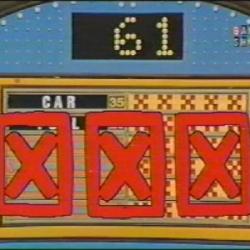Political interviewers of the Russert school often ask questions without listening to or caring about the answers given. The substance of either the question or the answer isn’t the point. The ritual, whether called an “interview” or a “debate” (their term for simultaneous interviews during which the interviewees remain standing) is really an attempt to measure politicians’ ability to “stay on message.”
What that message is is beside the point. The substance of the message, or its lack of substance, doesn’t matter. The politician might be explaining a practical solution to provide health care to the working poor, or they might be shrieking about “Islamofascism.” The interviewer doesn’t care and doesn’t think we should care. All that matters is whether or not the politician in question has demonstrated the required mastery of the art of staying on message.
Normal people tend to find this ritual either dull or laughable. Or both. But the Russerts of this world are deeply impressed, awestruck even, when George W. Bush proves able to answer every question on every topic with the word “terra,” or when Rudy Giuliani is able to answer every question with “9/11.”
This sort of ritual fosters an evasiveness and pretense that requires something less than candor or honesty on the part of both the asker and the (non)answerer. Even if you’ve never been a guest on Meet the Press, you’ve had a similarly distasteful experience — a taste of the same awkwardly stylized disingenuousness — if you’ve ever interviewed for a job. “What are your weaknesses?” the interviewer asks, reading from the standardized list of questions in the prepared script. Your task, at that point, is to recite a response from the standardized list of answers (“I’m a perfectionist,” “I care too much,” “My awesomeness, like the sun, can be blinding”). Do not answer candidly, or honestly, or relevantly, or in any way related to the generally accepted meaning of the English words “what,” “are,” “your” or “weaknesses.” Straying from the script will mean you don’t get the job.
The ritualized pretense of the job interview and the ritualized pretense of the political interview came together in a recent Democratic “debate” in which the moderator, Tim Russert of course, actually asked the candidates “What’s your biggest weakness?”
The question seemed to confuse Barack Obama. The Illinois senator responded to Russert’s question with the ultimate Beltway faux pax — a response to the question. He said he was disorganized and always losing papers amid the cluttered piles on his desk.
That was hardly an excessively confessional moment — Obama was surely withholding his biggest weaknesses — but it was close enough to an actual response that the rhythm of the ritual was thrown off. Obama had failed to do what the ritual required of him, which is to stay on message. His job was to wait until Russert’s lips stopped moving, then repeat his talking points — change, hope, out of Iraq, whatever. Those talking points, of course, do not include anything about whether or not his desk is organized.
John Edwards went next. When Russert’s lips stopped moving, Edwards said, “I sometimes have a very powerful emotional response to pain that I see around me,” and springboarded into his talking points. He walked the thin line between artifice and artificiality, and artfully recited an answer from the standardized list.
Obama has since joked about that debate: “If I had gone last, I would have known what the game was. I could have said, ‘Well, you know, I like to help old ladies across the street. Sometimes they don’t want to be helped. It’s terrible.'”
He’s since mocked his own ineptitude and Edwards’ polish, joking that his former opponent told Russert that his biggest weakness was, “I am just so passionate about helping poor people.”
Both variations of that joke gently chide Edwards and himself for playing along with and clumsily not playing along with, respectively, the absurd rituals of Russert-World. The barb in such comments, however, doesn’t cut into either of the candidates, but into the ritual itself and the pompous, insincerity of the moderator — of Russert and Russertism in all its incarnations.
Sen. Obama earns major points with me for acknowledging, and thus deflating, that distracting and corrosive absurdity. Bonus points for self-deprecation, and half an extra bonus point for the elliptical praise of his former rival (only half a point because he’s probably sucking up for an endorsement from the man I hope to see as our next Attorney General).
But wait, couldn’t there be another opposite-from-the-apparent way to interpret those comments? Couldn’t Obama’s jokes be taken as mockery directed at John Edwards and, what’s more, at “poor people” themselves?
Well, we could try to interpret them that way. … Hmmm. … No, maybe if we squint and tilt our heads? … No. Uh-uh. I can’t manage that.
For that level of determinedly obtuse humorlessness, we’d have to turn to Roger Simon of The Politico.
Simon — who hopes one day to grow up to be Tim Russert himself — announces that “Barack Obama mocked John Edwards in a speech.” This, he says, was “so bizarre” that he could scarcely believe it, but he did, after all get the tip, and the spin, straight from Mark Halperin — former editor of “The Note,” i.e., the L’Osservatore Romano of the Church of Russert. So it must be true.
After all, Obama couldn’t possibly be making fun of people like Russert and Halperin and The Politico. Everyone knows they are all deeply serious and weighty and beyond mockery. So he must, therefore, have been mocking Edwards. And poor people. And puppies. Poor puppies. Yeah, that must be it.
Trying to explain humor to Roger Simon would be like trying to explain peacock blue to someone blind from birth.















